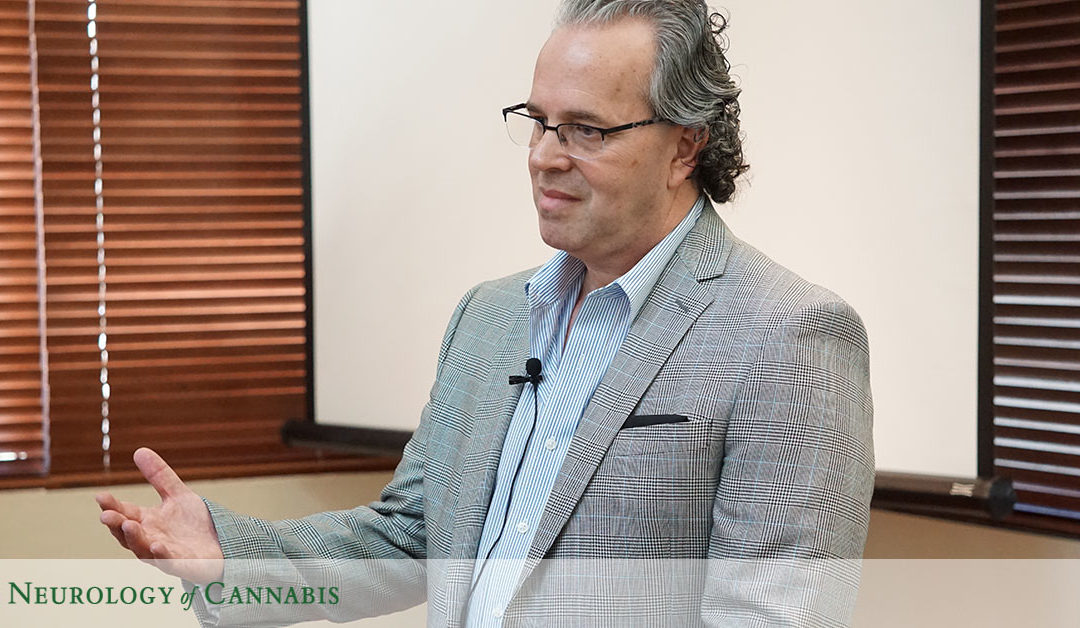Because cannabis is known to induce relaxation and serenity, it is often utilized by those living with depression and anxiety. This same group of people also tend to take antidepressants (such as Zoloft or Prozac) along with their medical cannabis. Therefore it is vital for recommending physicians to understand the relationship between these two treatments and be educated on potential interactions when taken simultaneously.
Unfortunately, few major studies have been conducted that can speak definitively to the effects of joint medical cannabis and antidepressant use. However, the Division of Child and Adolescent Psychiatry at the University of Connecticut Health Center reviewed available literature and studies to study the matter. Their resulting report stated that while it may seem logical that combining psychoactive drugs and psychotropic medications would result in more frequent adverse effects, reports of such reactions are remarkably scarce.
It appears likely that modern antidepressants represent low to moderate risks when mixed with medical cannabis, while more conventional antidepressants present a more significant risk. In RxList, an online index of drugs published by WebMD, the risk of adverse effects is classified as “moderate,” and patients are urged to be cautious and seek their physicians’ advice when taking these two classes of treatments. The most significant challenge when recommending cannabis to someone on antidepressants is a matter of appropriate dosage.
Medical professionals point out that one of the more critical variables in combining drugs is the accurate assignment of side effects and behavioral changes. The more substances a patient is taking, the more complicated it is to determine which drug is causing which side effect. Because of this, most physicians prefer to start with one drug, introducing additional treatments one at a time.
“I was, at times, able to get patients to agree to stop their marijuana use for a few weeks just so they could determine whether there was or was not an improvement in mood,” says Schwartz. “These individuals were surprised, but were willing to admit that they felt real improvement in mood and functioning.” Allan Schwartz, LCSW, PhD
How Cannabis May Affect Other Treatment Protocols
The research does indicate that patients who are depressed are more likely to abuse use higher doses of cannabis, using marijuana at a rate as much as 8 times higher than other cannabis users. Physicians also observe that those who use cannabis are less likely to faithfully adhere to their other medical treatment schedules. Schwartz relates his experience with patients going on and off medication intermittently, often with severe results.
“I have directly witnessed the tragedy of patients going off of their medications for bipolar disorder, using marijuana, and ending up re-hospitalized in worse shape than any time before the relapse,” said Schwartz.
Potential Interaction Risks
* SSRIs (Prozac, Paxil, Zoloft, Celexa, and Lexapro) are the most frequently prescribed depression drug treatments. Patients experience fewer side effects and adverse interactions with SSRIs than other classes of antidepressants.
Suspicions that a cannabis and SSRI interaction may increase hypomania in vulnerable populations exists, but even so, adverse reactions with cannabis use are rare.
* SNRIs (Cymbalta and Effexor XR) are in the newer class of antidepressants. The risk of adverse reaction with simultaneous cannabis use is considered low to moderate.
* NDRIs ( Wellbutrin, Aplenzin, and Forfivo) are often prescribed for ADHD and smoking cessation treatment. Reports of adverse interactions are also scarce.
* MAOIs (Parnate, Nardil, and Marplan) are rarely used anymore due to adverse side effects and severe interactions with many medications and dietary options. There is virtually no data regarding joint usage of MAOIs and medical cannabis.
* Sedatives: Although not officially antidepressants, this class of drugs merits discussion. Many patients living with depression are also prescribed sedatives by their physician. Both medical cannabis and sedatives can result in extreme drowsiness. When combined, the effect may be further amplified.
Conclusion
The potential for serious adverse reactions resulting from cannabis and antidepressant usage is, overall, relatively low.
However, depressed patients may be more likely to be lax regarding treatment protocols and are also at higher risk of their marijuana intake becoming problematic. Therefore, it is important that all patients being treated for depression are upfront and honest with their physicians regarding cannabis use to monitor and isolate any problems.
Dr. Daniel P. Stein is a leading expert in medical cannabis treatment for a broad range of afflictions. His offices are located in Sarasota, Florida.

